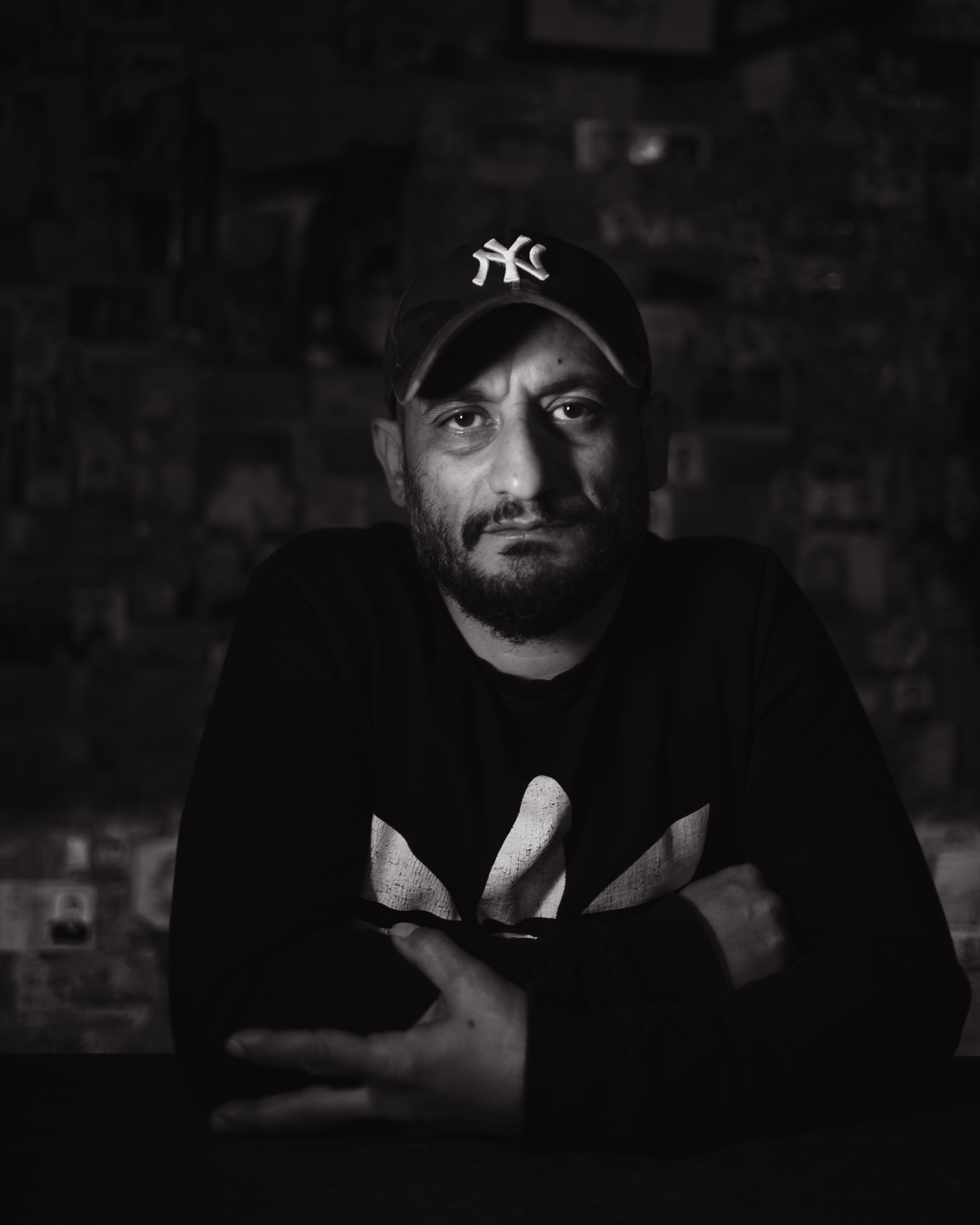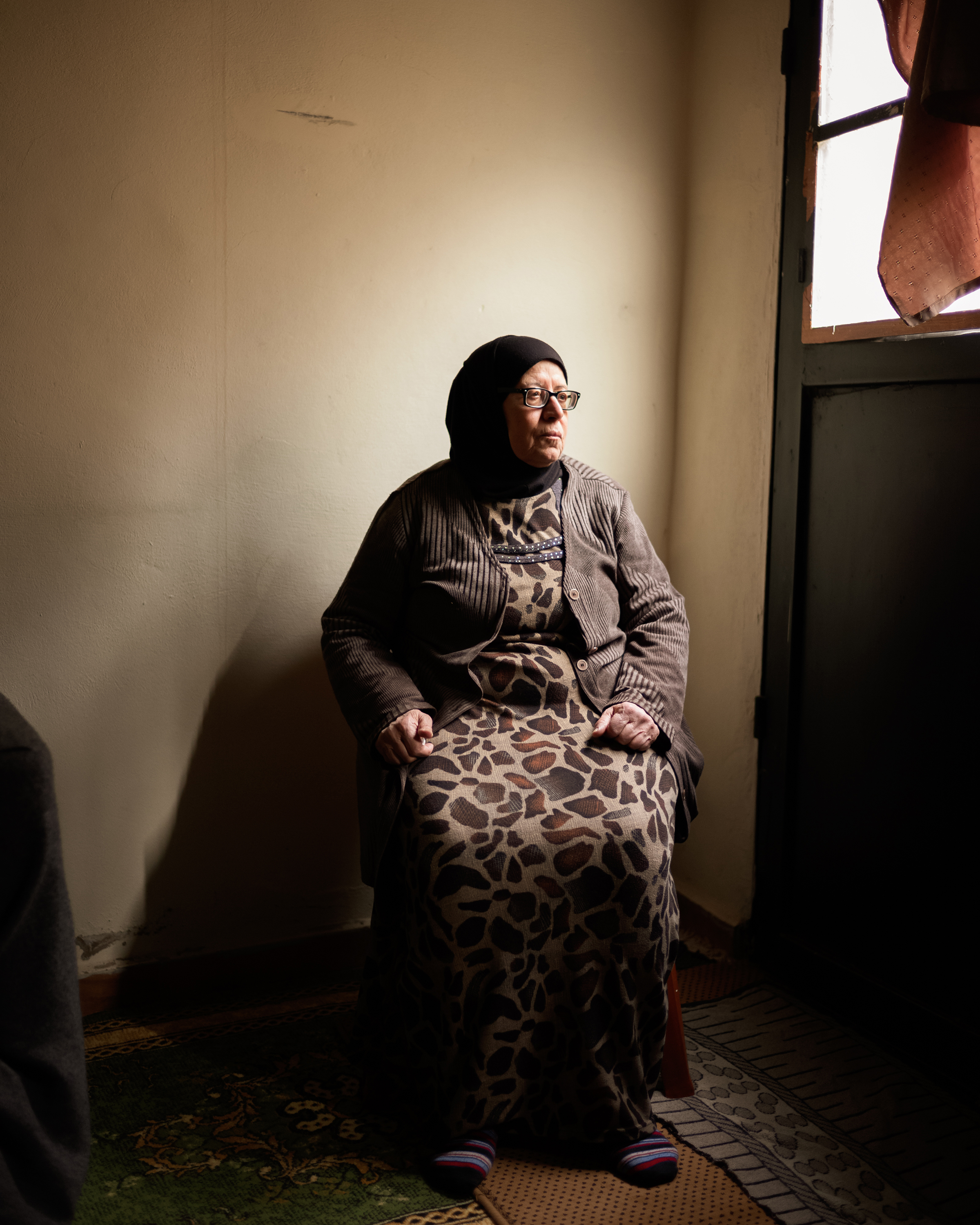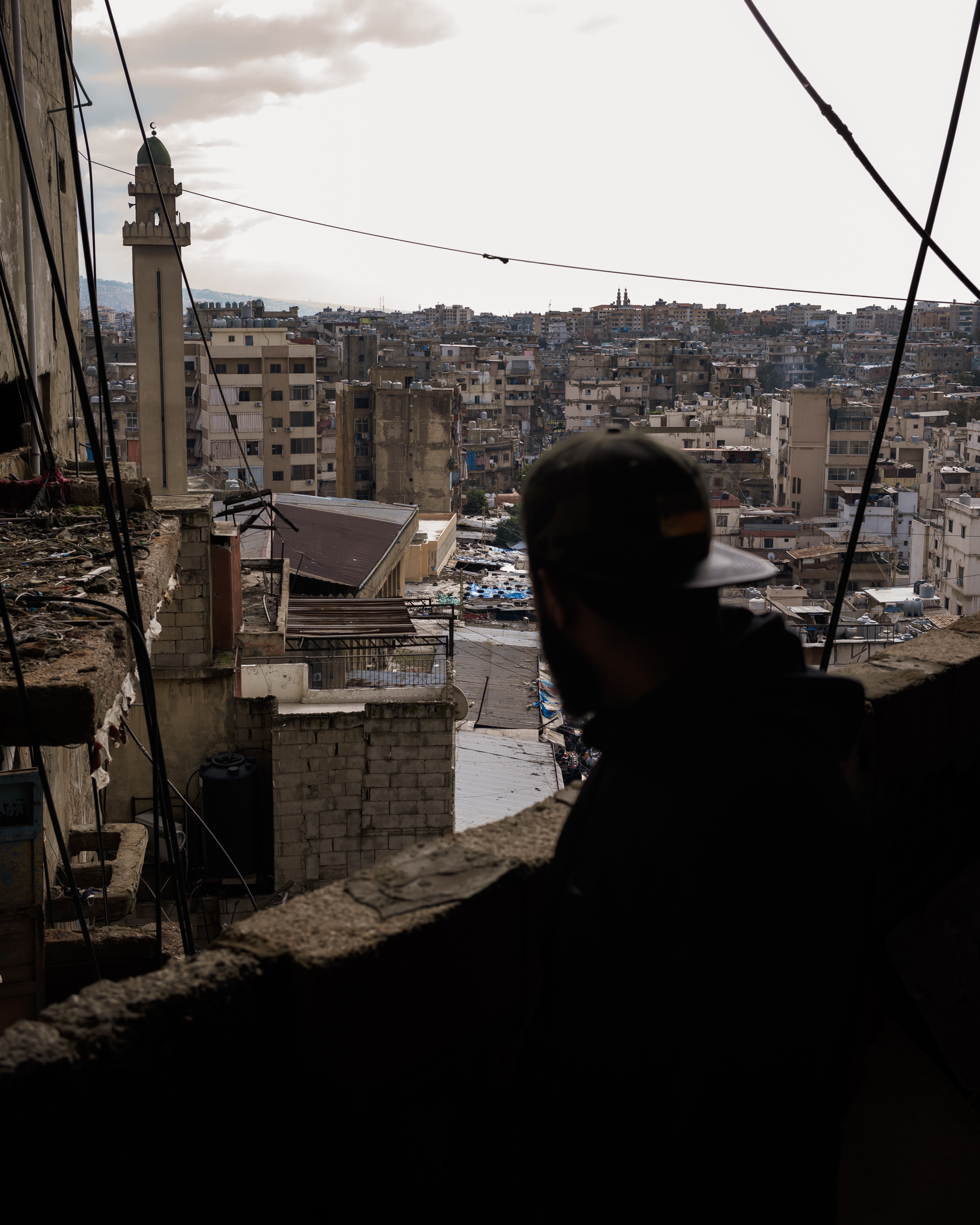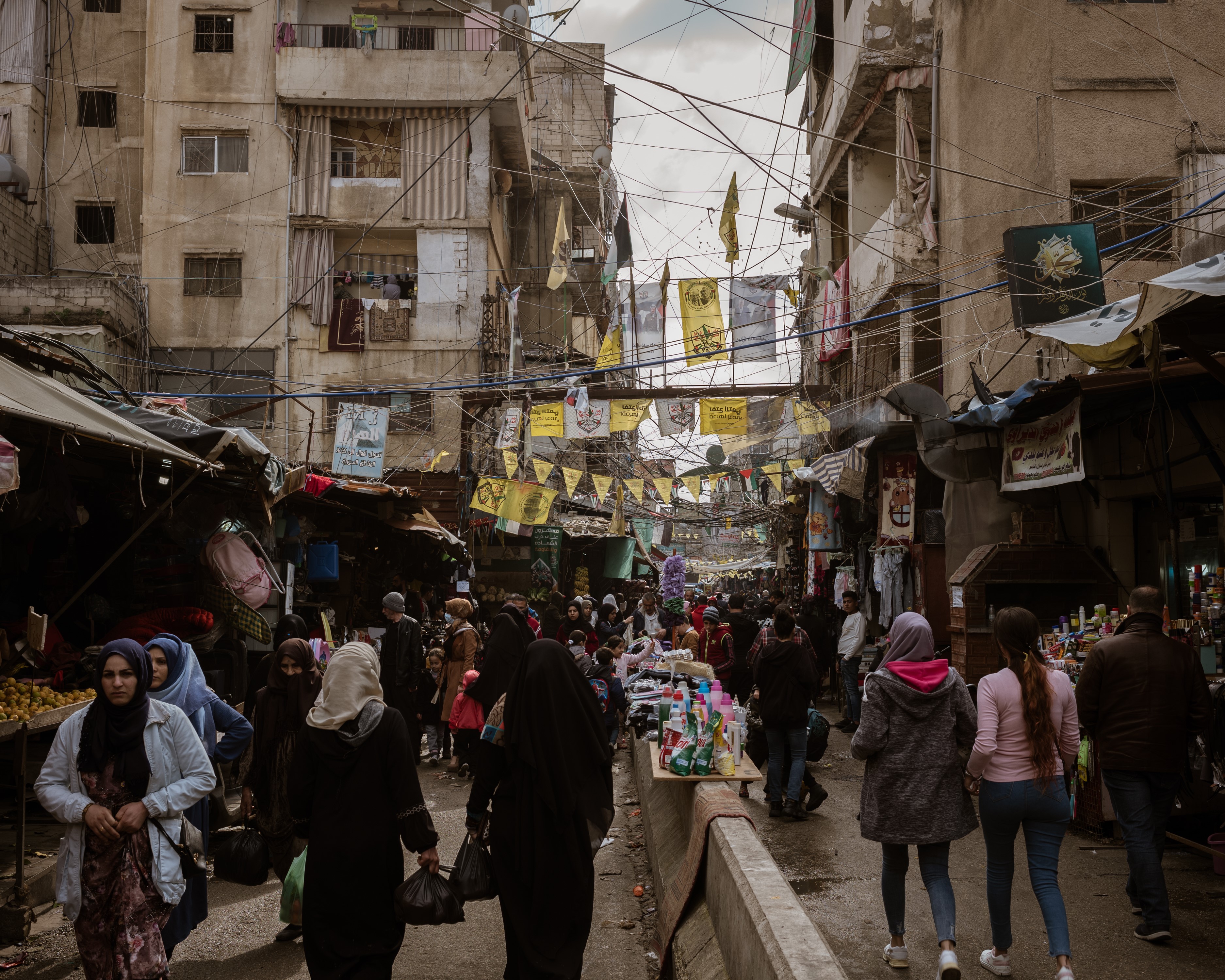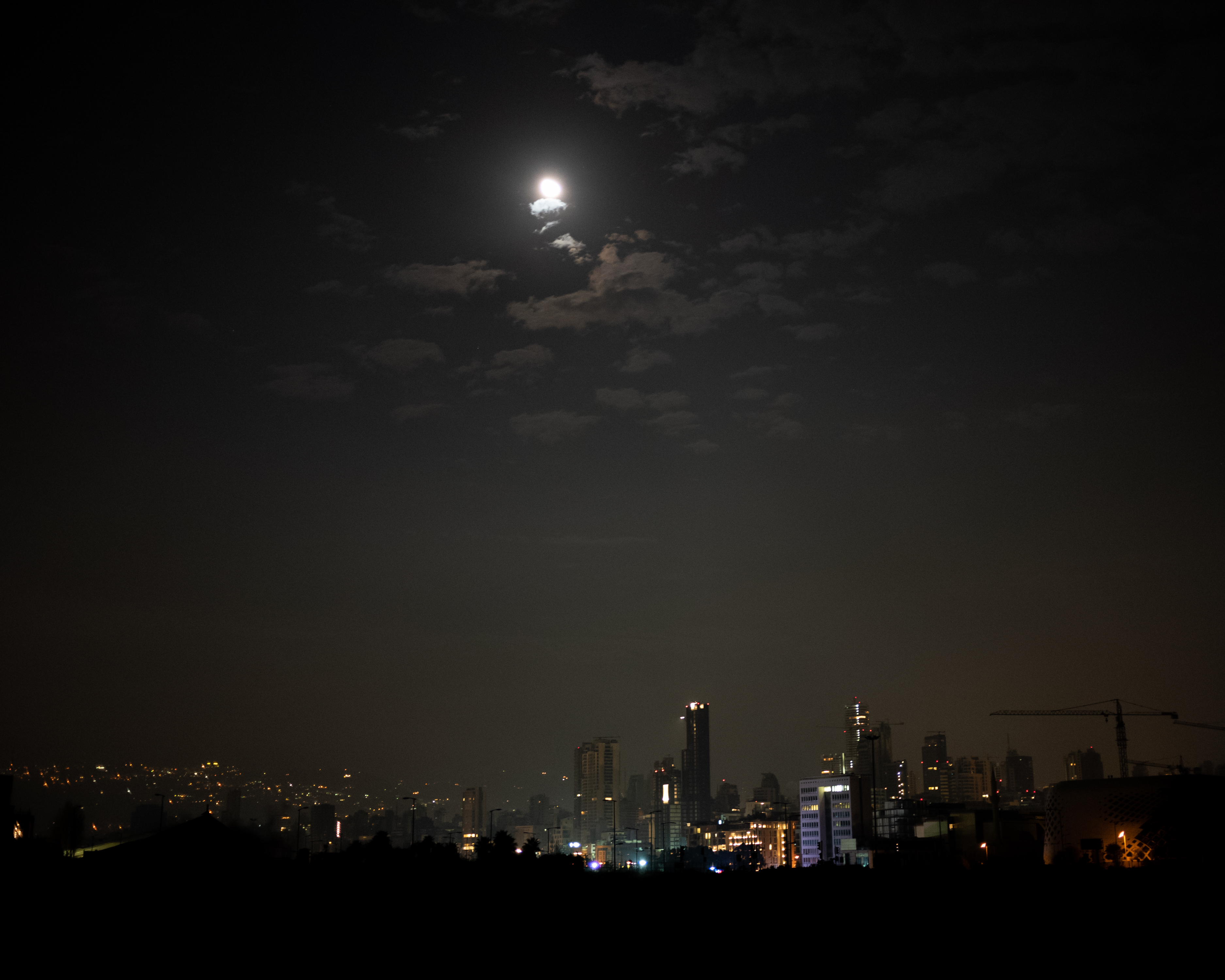War tears families apart. Sometimes the separation is temporary, sometimes permanent. Khalid’s wife and their toddler son, Eli, live in Europe. Khalid remains in Lebanon. He has made repeated attempts to join his family, but in vain: his visa applications have all been rejected. Learn about Khalid’s situation.
Home for me is my family.
Home is not a building. It is not four walls to decorate.
Above all, my home is life, the people who give my existence meaning. But I am homeless, because my wife and I live on two different continents.
photo: Agata Grzybowska
My wife is Lebanese, living in Sweden. We were married in 2017. In 2019, our son was born: Eli. Today he is two and a half years old, and yet I have never seen him with my own eyes, never had the chance to take him into my arms and hug him. In my dreams I am physically aware of his presence. I can only see him in the photos and videos that my wife sends me. I can see him growing. Sometimes I receive Eli’s clothing in the mail, or a lock of his hair. In this way, I can experience his smell for a moment.
I have repeatedly applied to the Swedish authorities for a visa under the family reunification program. Without success. All of my applications have been rejected. The official explanation stated that my income was too low, and that my wife did not have an employment contract in Sweden and her income was also insufficient. My wife is in Sweden alone, raising our child on her own. I am not with her and there is no way I can help her. By Swedish standards, what I earn in Beirut is not enough to support my wife, not even to pay the bills.
My ultimate dream is to be reunited with my family and to raise our son together. What I seek is a miracle. Because each day I wake to face the reality of an inhuman world of bureaucracy. It breeds anger. I carry this anger around with me each day. I feel it the moment I wake up, and it is still with me when I go to sleep.
Right after Eli was born, we sent his birth certificate to the embassy as proof that I was his father. We applied for a visa and to initiate the family reunification process. The reply came: I was not allowed to travel to Sweden but I had the right to see my child. Eli could come to me, but I could not leave Lebanon.
Eli is a child of the Revolution that began on October 17, 2019. He came into the world at a time of unparalleled political and economic crisis in Lebanon. In October 2019, Lebanon was aflame. Not even two years later, the world entered an era of death, an unending pandemic devouring human lives. Flights were grounded. Nations sealed themselves off. Curfews were enforced. Countless people lost their jobs, exacerbating the economic crisis. This was the moment when I received an official reply informing me that Eli could come to me in Beirut. How, precisely, was this expected to take place? At this moment of acute crisis, when there were no prospects whatsoever in Lebanon. How would my two-year-old son travel by plane when the whole world was shutting down? In Lebanon, many people struggle to find milk for their children; often diapers are hard to come by. There is scarcity of water, food shortages… Tell me, how could they write in such a situation to suggest my son come to me?
A Muslim says: I sit by force in the desert. I was confronted with circumstances that made it impossible for me to be with my family, with the ones who are the most important part of my being.
We live in an age of immense crisis. People come face to face with the machinery of destruction. We are overwhelmed by the weight of poverty, misfortune, death, and many other horrors.
Everyone has the right to be together with their family. To sit at the table with their loved ones and share dinner, rock their child in their arms and read them a book. When this is missing, a chasm opens and a child grows up with a sense of what was denied them. When he is older he will ask: “Where was my father?” This is psychological warfare, a man’s war against himself. It can tear anyone to pieces.
I am tired. I yearn to see my family before I die. I want to hug them. My mobile phone is everything to me at this point: my memory, my family album. Remembrance of what we could not experience together. Through it, I watch my son, who I cannot hold in my arms, grow up.
Khalid
Beirut, Lebanon
Footnotes
- “The 17 October Protests, commonly referred to as the 17 October Revolution, is a series of civil protests taking place in Lebanon. These national protests were triggered by planned taxes on gasoline, tobacco, and VoIP calls on applications such as WhatsApp, but quickly expand[ed] into a country-wide condemnation of sectarian rule, the stagnation of the economy, unemployment […], endemic corruption in the public sector, […] and failures of the government to provide basic services such as electricity, water, and sanitation”; en.wikipedia.org/wiki/17_October_Revolution [accessed October 18, 2022].

